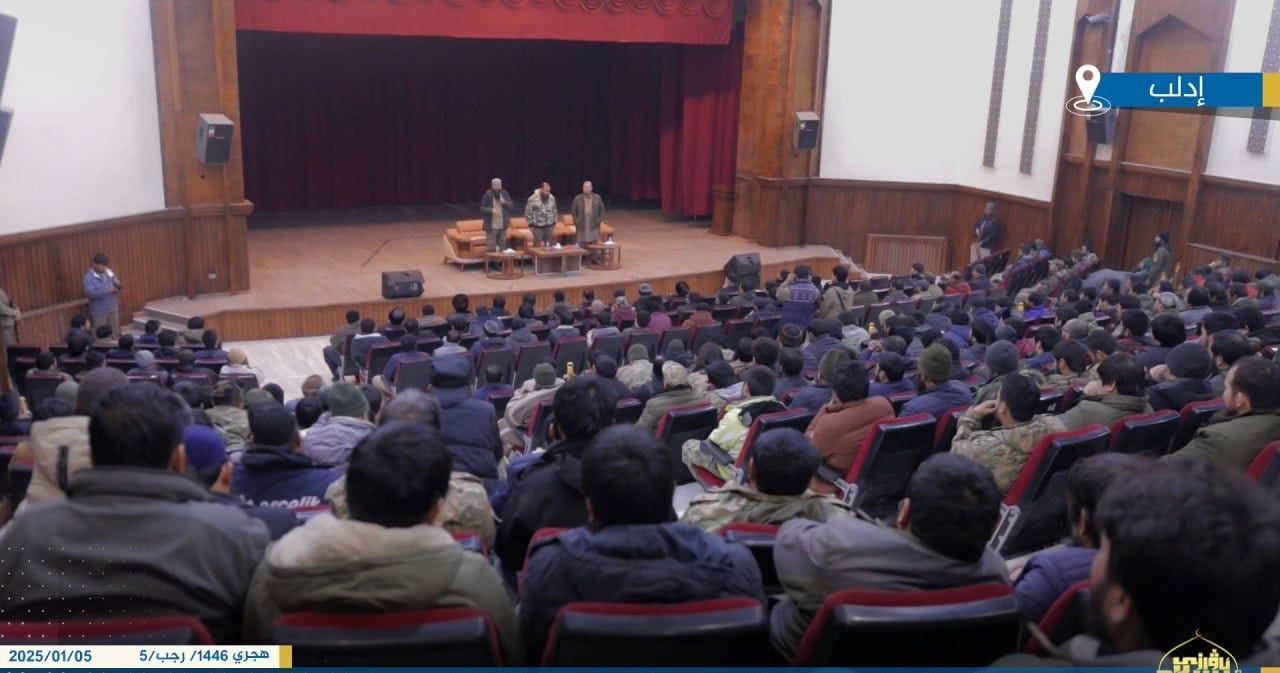Turkistan Islamic Party Criticises Chinese Imperialism, Calls for Cooperation
New booklet from the deputy leader of the group seeks alliances with other nations to counter Chinese's global influence
On February 25, 2025, the Turkistan Islamic Party (TIP) published a 19-page document titled “The Chinese government is a threat to the entire world,” written by Abdul Salam Turkistani, the group's deputy leader and one of its main religious and political ideologies.
The text is an account of the Chinese government’s repressing measures in Xinjiang (East Turkestan province) and an analysis of Chinese economic projects in Asia, the Middle East, Africa, and Europe. The core message of the text is that according to the author, East Turkestan is not an internal issue of China and the Uyghur people but rather an international issue.
Abdul Salam argues that the TIP has been fighting a defensive war against China since 1949 due to the occupation of the sovereign state of East Turkestan, which China has occupied. He claims that this has been the starting point of a global strategy devised by China, reiterating what the group has been saying for the past decades. However, beyond the content of the booklet, the language used by Abdul Salam is particularly interesting as it is devised to appeal to the international community and, specifically, the West.
The text argues that China employs a combination of economic and defensive tactics to eradicate human rights and freedoms in South Asia and Central Asia by implementing “a very dangerous agenda through charity diplomacy, military force, repression, tyranny, and murder.” Abdul Salam particularly emphasises the economic aspect of this strategy, claiming that China takes advantage of the economic weakness of some countries to take control of important locations in those countries in exchange for debts, plundering their wealth and seizing their economic centers and strategic ports under the pretext of friendship and cooperation. As examples, Abdul Salam cites the cases of the Uganda International Airport, Hambantota Port in Sri Lanka, and Gwadar Port and Balochistan province in Pakistan. He warns that China plans to do the same to other regions, such as Mongolia, Tibet, Taiwan, Manchuria, Burma, Nepal, and Bhutan. Abdul Salam argues that the Belt and Road Initiative, the China-Pakistan Economic Corridor, and the China-Europe high-speed rail network serve this goal.
The TIP ideologue further claims that China not only aims at economically subjugating countries but also it is a source of global political instability. Citing a newly released map of China that has drawn new borders (an updated version of the one published in 2023), Abdul Salam maintains that China is a threat to both minorities within the countries as well as to the integrity of other countries. Abdul Salam specifically argues that the new map of China has claimed Aksai Chin, Arunachal Pradesh, Doklam, Galwan, and Tibet as its territory, and Malaysia, Brunei, Vietnam, the Philippines, and Taiwan have been portrayed as part of China.
The second half of the booklet actively calls on the international community to side with the TIP in its struggle against China. Abdul Salam claims that East Turkestan is the frontline for all countries that wish to oppose China’s global ambitions, calling on them to side with the TIP and help them in their conflict before the conflict reaches them.
“There is a famous rule: The enemy of my enemy is my friend. Consider us as your "friends" against China! If you want to destroy China, it is very important for you to help us.” - Abdul Salam
Abdul Salam mentions the Belt and Road Initiative as one of the most rewarding potential targets for damaging Chinese interests. The militant claims that as East Turkestan is a focal node for the project that spreads from Xinjiang to the rest of Central Asia, any damage to the project will harm Chinese interests. Importantly, Abdul Salam indirectly refers to those countries in the West that are concerned by the expansion of the Belt and Road Initiative and other Chinese economic projects as Trojan horses for Chinese influence.
Abdul Salam concludes by stating that the TIP is extending a cooperative hand towards all those countries that are interested in tackling Chinese influence, and that “the defeat of the Chinese regime is an opportunity for all countries in the world, including America and Europe.”
The TIP directly threatens Beijing to start a new phase in its struggle against the Chinese government. The new phase of the conflict will include the death of “innocent people”, while cities and houses will be destroyed. Abdul Salam maintains that the main targets of the TIP will be Chinese forces stationed in Xinjiang, claiming that the TIP will bring the fight directly in the province until Chinese troops withdraw and East Turkestan becomes a sovereign state.
While the majority of the booklet shares content similar to those featured in several past publications, the key difference rests in the appealing language to the international community and Western audience and the timing of the publication. After the toppling of Bashar al-Assad and the end of the war in Syria, the TIP claimed that the group had achieved its two short-term objectives: the liberation of Afghanistan and the liberation of Syria. Since December 2024, the group has been spearheading a series of events in Syria aimed at raising awareness of the situation in Xinjiang. It appears that the TIP is preparing the ground for possibly opening a new front directly within Xinjiang province, although the circumstances remain still uncertain and murky.






Can you provide the original link of the brochure?
And where is TIP operating???